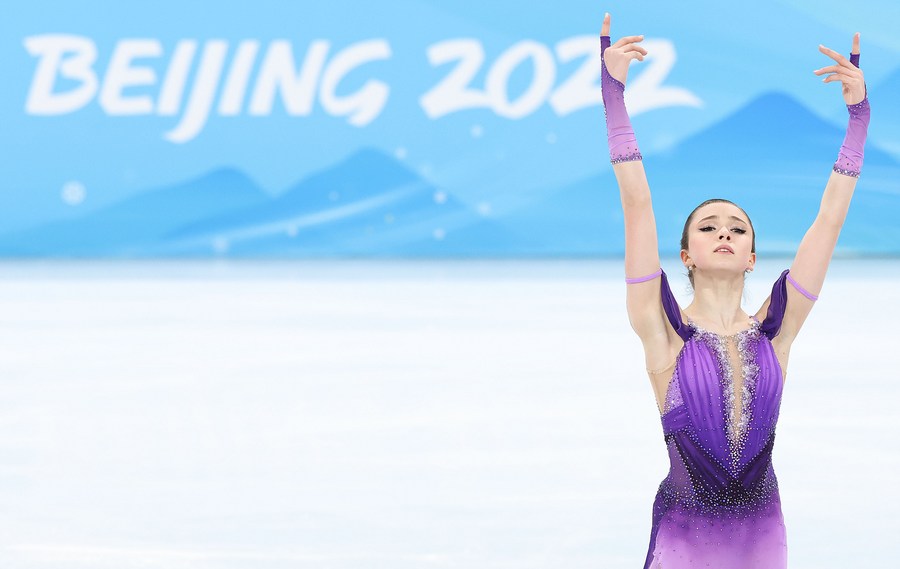WADA president criticizes CAS decision over Valieva
 0 Comment(s)
0 Comment(s) Print
Print E-mail Xinhua, February 16, 2022
E-mail Xinhua, February 16, 2022

World Anti-Doping Agency (WADA) president Witold Banka on Tuesday called the decision of the Court of Arbitration for Sport (CAS) to lift the provisional suspension of Russian Olympic Committee (ROC) figure skater Kamila Valieva "very controversial."
Valieva had been provisionally banned on February 8 when a sample taken in December last year returned a positive result for the banned substance trimetazidine. She was allowed to continue competing at Beijing 2022 after the Russian Anti-Doping Agency (RUSADA) Disciplinary Committee lifted the ban on February 9.
WADA, the International Olympic Committee and the International Skating Union appealed against the RUSADA's decision with CAS on Friday, yet CAS on Monday declined to impose a provisional suspension on Valieva.
"We are disappointed with the way the Arbitration Tribunal approached this ruling. I don't know why CAS chose not to rely on the World Anti-Doping Code. This is a very controversial decision, because the code does not provide for special exceptions to the so-called 'temporary suspension' in the case of minors," Banka said in Tuesday's interview for Polish media.
The ROC said on Friday that it is "taking comprehensive measures to protect the rights and interests of the ROC Team members and to keep the Olympic gold medal won in fair competition" in an official statement.
The ROC "also assumes that a full investigation will be conducted to determine all the relevant legal and factual circumstances of what happened," it added.
"Given the fact that the positive sample of the athlete was taken not during the Olympic Games, the results of the athlete and the results of the team event during the Olympic Games are not subject to automatic revision," the committee added.
RUSADA claimed in a statement that it is not responsible for the fact that Valieva's failed doping test arrived after the start of the Winter Olympics as it "is strictly guided in its activities by the provisions of regulatory documents, namely the code and international standards."
The athlete's sample collected on December 25, 2021 was delivered to the laboratory in the time sufficient to perform the analysis within the standards timeframe, RUSADA added.
Banka, however, said that RUSADA made a mistake.
"Usually, national anti-doping agencies mark important samples as a priority, and then there are no problems with a quick result or possible delays. RUSADA did not do this. Hence, the Swedish laboratory did not know that a given sample should be tested very quickly. This is a RUSADA mistake", said the WADA president.
"Doping minors is a crime in pure sport. People who do this should end up in jail. Their place is there. In many countries there are regulations, for example in Poland, where such acts are punishable by imprisonment of up to three years. And I think they should be punished like that. It is still a big problem of culture in Russian sports. There are still coaches, doctors and activists who dope minors," Banka added.
"We now expect a very intensive investigation of this matter from them. At the same time, WADA will conduct its own investigation," he said.






Go to Forum >>0 Comment(s)